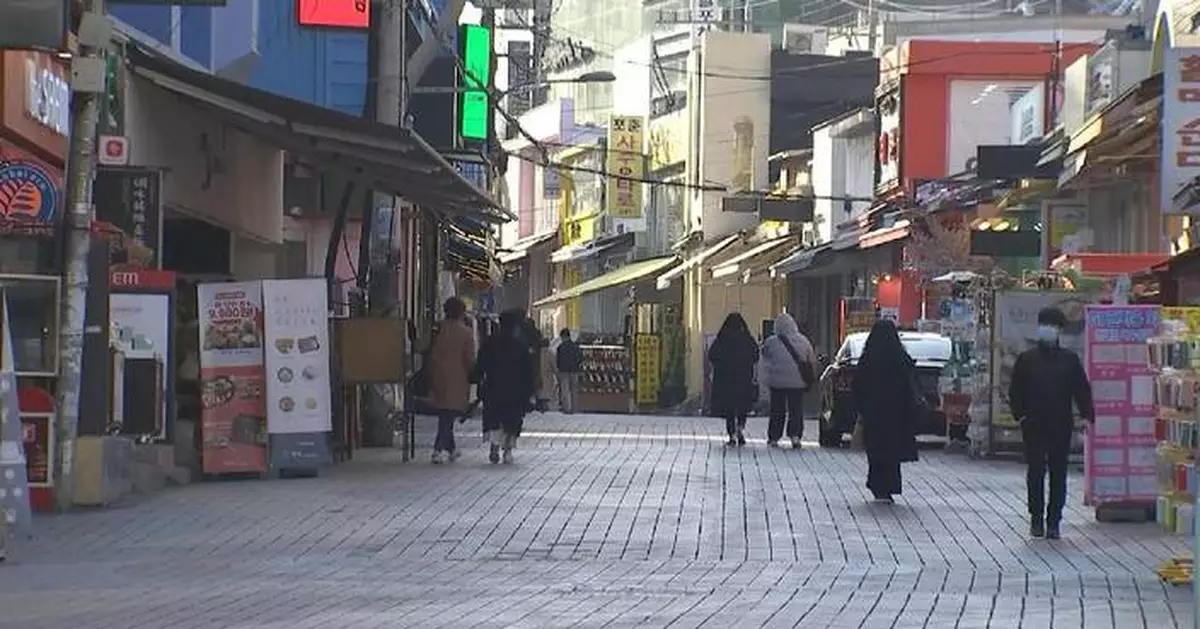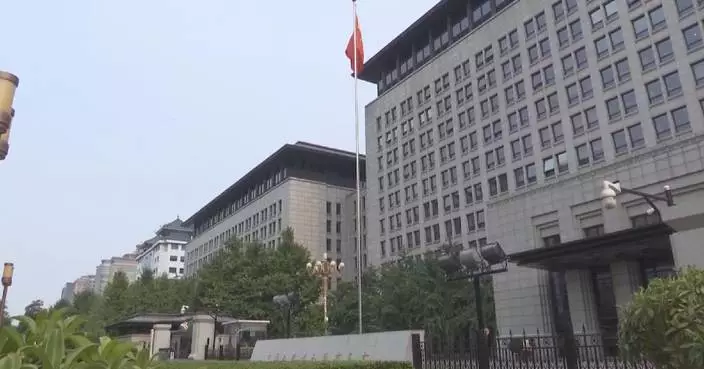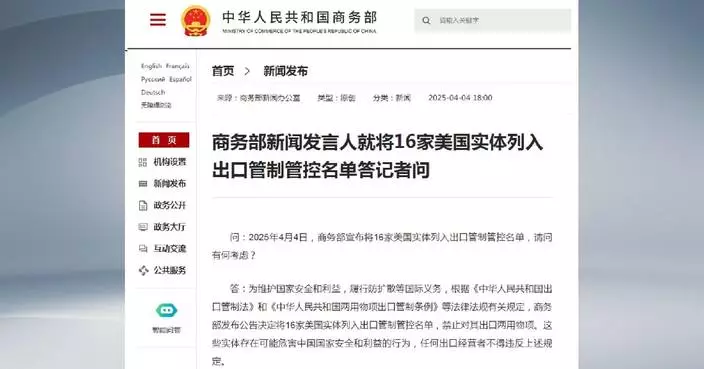Consumer sentiment in South Korea has been severely dented as the country reels from the shock of its deadliest ever air disaster and ongoing political turmoil, with many residents saying they chose to ring in the New Year in a quieter fashion amid the difficult circumstances.
The political chaos caused by the short-lived martial law imposition in early December had already cast a cloud of uncertainty over the country, while Sunday's tragic Jeju Air plane crash which claimed 179 lives, making it South Korea's worst aviation disaster in nearly three decades, has led to a period of national grief.
A memorial altar for the victims of the Jeju Air plane crash accident was set up in front of Seoul City Hall on Tuesday. The altar will be operational for five days until the seven-day national mourning period concludes on Jan 4. Many citizens came to pay their respects to the victims, offer the chrysanthemums, and take a moment of silence, on the last day of 2024.
"We are also parents, so we share the grief of losing family members in this tragic accident. We are here to pray for the deceased, hoping they can rest in peace. We are saddened that such a serious accident happened just as everyone was ready to usher in the new year," said a local resident.
Shopping malls in South Korea's major business districts would typically be bustling with customers at the end of the year. However, this time, the streets of the famous Hongdae business district in Seoul are notably more deserted compared with the vibrant atmosphere seen on previous New Year's Eves. Many citizens have expressed that this is not an appropriate time for recreational activities.
"This year, I'd like to spend a quiet New Year's Eve, and we also plan to reduce our consumption. Unlike previous years, I will be at home with my family and welcome the New Year in a simple and quiet manner," said a citizen.
"I have no ideas for New Year's Eve this year. Actually, I don't have any party plans at all," said another citizen.
In the week following the declaration of martial law, the credit card spending of South Korea's eight major credit card companies plummeted by around 26 percent compared with the previous week. Data from the Bank of Korea indicated that South Korea’s consumer confidence suffered the biggest plunge since 2008.
In the first 23 days of December, more than 1.1 million performance bookings were canceled. To make things worse, many stores have received reservation cancellations in recent days after the air disaster.
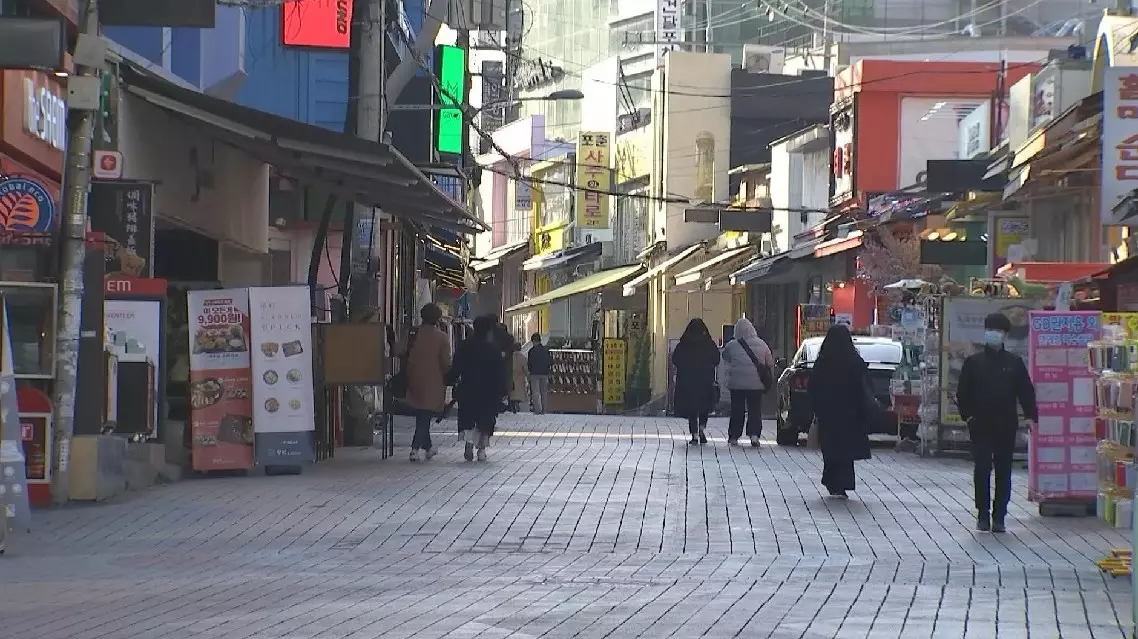
Consumer sentiment dented in S Korea as nation grieves over air disaster over new year
A survey released by CGTN to global netizens shows that respondents strongly condemn the U.S.'s unilateral bullying of other countries under the pretext of "reciprocal tariffs," saying that this move may trigger countermeasures from other countries and eventually evolve into a "tariff world war," seriously impacting the world economy.
The U.S. claims that it has suffered losses in international trade and is raising tariffs on all trading partners under the pretext of "reciprocity," aiming to reduce the trade deficit. However, 81.03 percent of global respondents do not agree with this, believing that such measures will not achieve the expected results. During his first term in office, U.S. President Donald Trump imposed tariffs on major trading partners. According to statistics from the American Action Forum, a think tank, Trump's protectionist policies during the first term cost U.S. consumers about 57 billion U.S. dollars annually. According to the survey, 81.94 percent of respondents believe that "reciprocal tariffs" cannot solve U.S.'s own problems but will only harm the interests of U.S. consumers and drag down the U.S. economic growth.
The competitiveness of products from different countries varies. Each country can set appropriate tariffs based on its own products to achieve "mutual benefit" in the international market. The "tariff farce" of the U.S. side is a selective disregard for the balance of interests reached through multilateral trade negotiations. Some 82.8 percent of the respondents point out that in the context of unequal economic development and economic strength of different countries, the U.S. insistence on full and complete reciprocity in tariffs is extremely irrational.
The majority of the U.S. tariffs this time are targeted at developing countries. Regarding this, 82.96 percent of the respondents condemn the U.S. for conducting "indiscriminate attacks" on other countries on the issue of tariffs, believing that this is a deprivation of the development rights of other countries, especially developing countries. According to the survey, 84.43 percent of the respondents believe that the U.S.'s imposition of "reciprocal tariffs" will exacerbate the problem of trade unfairness with its trading partners and traditional allies, seriously damaging the country's credibility.
As a member of the World Trade Organization (WTO), the U.S. has unilaterally and subjectively introduced so-called "reciprocal tariffs" and insisted on implementing them. This is a typical act of unilateral bullying. In response, 79.47 percent of the respondents criticize the U.S. for seriously violating the rules of the WTO. In the survey, 79.58 percent of the respondents say that "reciprocal tariffs" have become a new tool for the U.S. to promote trade protectionism, which will further intensify international trade tensions and global economic fragmentation.
This survey was released on CGTN's English, Spanish, French, Arabic and Russian platforms. Within 24 hours, a total of 9,600 overseas netizens participated in the survey and expressed their views.
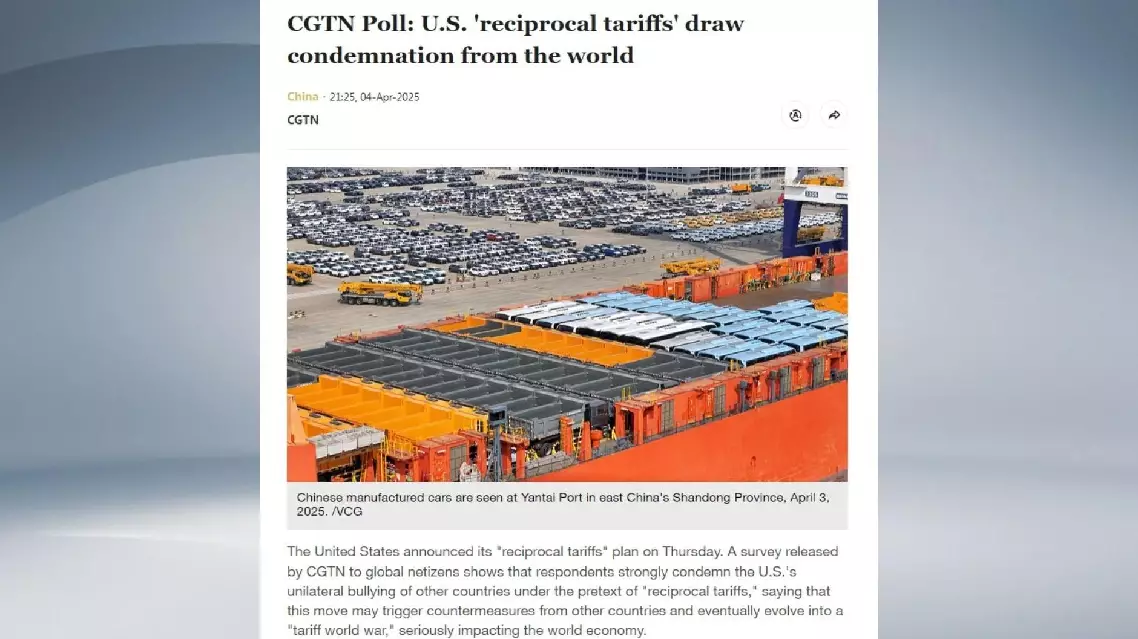
CGTN poll: US 'reciprocal tariffs' draw condemnation from world



